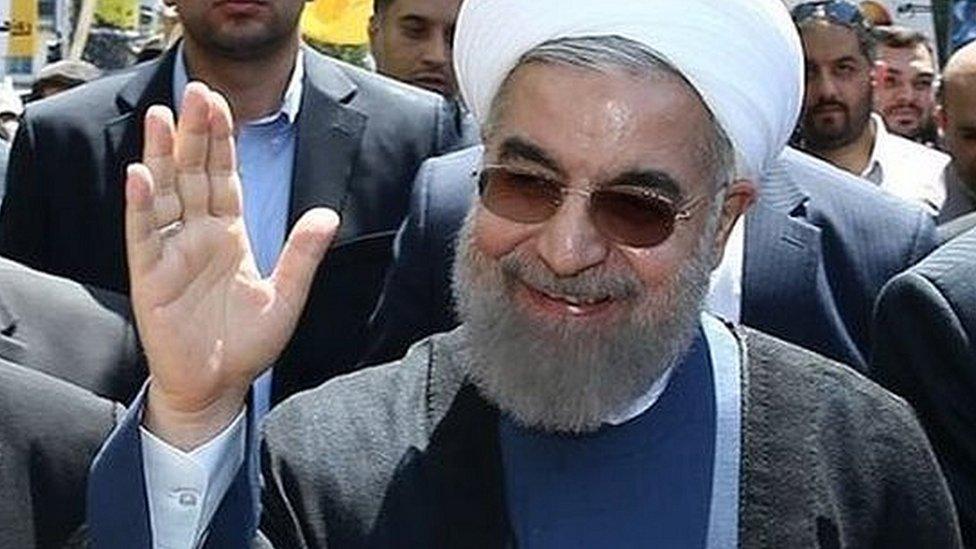Iran protests: US accused of 'grotesque' interference
- Published
Iran protests: Why people have taken to the streets
Iran has accused the US of "grotesque" interference in its internal affairs in a letter to the UN.
It said the US leadership, in "numerous absurd tweets, [had] incited Iranians to engage in disruptive acts" which violated international law.
Twenty-one people died in six days of protests sparked by Iran's economic problems, which spanned several cities.
On Thursday state media focused on pro-government rallies after a second night without reports of major protests.
The unrest was initially over price rises and corruption but the focus quickly turned to the remote elite and particularly Supreme Leader Ayatollah Ali Khamenei,
They are the largest protests since the disputed 2009 presidential election.
Why is Iran so upset about the US?
Since the protests broke out, US President Donald Trump has endorsed them, culminating on Wednesday with the suggestion that the US could offer "great support" to protesters.
Allow X content?
This article contains content provided by X. We ask for your permission before anything is loaded, as they may be using cookies and other technologies. You may want to read X’s cookie policy, external and privacy policy, external before accepting. To view this content choose ‘accept and continue’.
This chimes with the conservative Iranian narrative which blames the protests in part on foreign powers including Israel, Saudi Arabia and the US.
In his letter, Iranian UN envoy Gholamali Khoshroo said the US had a track record of intervening in Iranian affairs.
However, he added, the current administration had "crossed every limit in flouting rules and principles of international law governing the civilised conduct of international relations".
Despite professions of solidarity with the Iranian people, he said, the US had actually insulted them by banning ordinary Iranians from entering the US (under Mr Trump's travel ban) and with Mr Trump's refusal to certify an internationally agreed deal to limit Iran's nuclear programme.
The Russian foreign ministry echoed the concerns, urging the US not to interfere in Iran's "domestic issues", Russia's Itar-Tass news agency reports.
On Tuesday, US envoy to the UN Nikki Haley branded as "complete nonsense" Iran's suggestion that external enemies were fomenting the unrest.
She said: "The people of Iran are crying out for freedom. All freedom-loving people must stand with their cause."
What's happening with the protests?
They seem to be dying down despite unverified reports of small protests in a number of cities after nightfall on Wednesday.
The same day, the head of Iran's elite Revolutionary Guards said "enemies" had been defeated and the Guards had only intervened in a "limited" way in three provinces.
Internet messaging services Telegram and Instagram remained blocked, as they have been since the protests began.
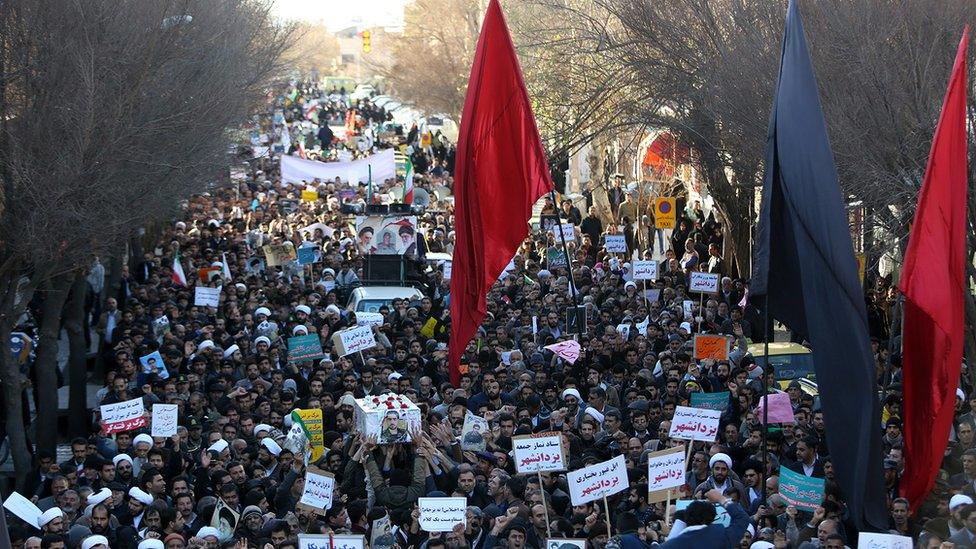
Large rallies in support of the leadership are now being held in cities around Iran
However, there were calls in parliament to remove some of the most unpopular measures from last month's budget, including welfare budget cuts and energy price rises, AFP news agency reports.
On Thursday, state television showed large pro-government rallies in Ardabil, Mashhad, Shiraz, Birjand and Isfahan.
- Published2 January 2018
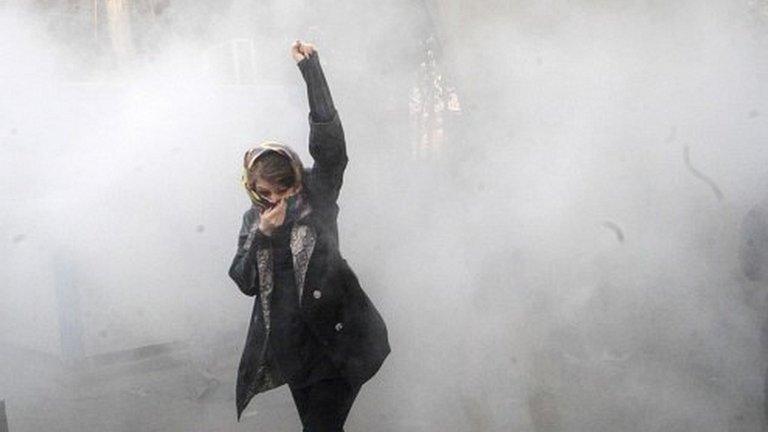
- Published2 January 2018
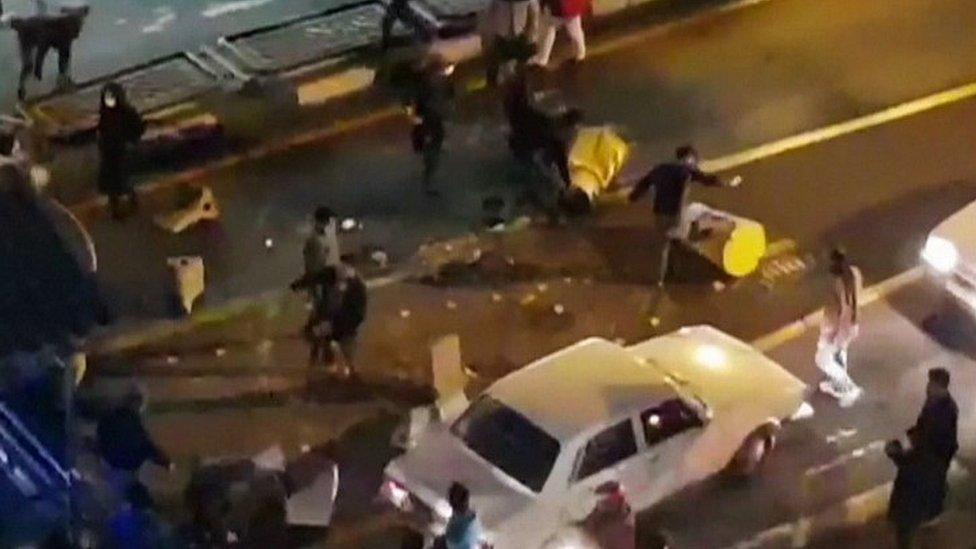
- Published31 December 2017
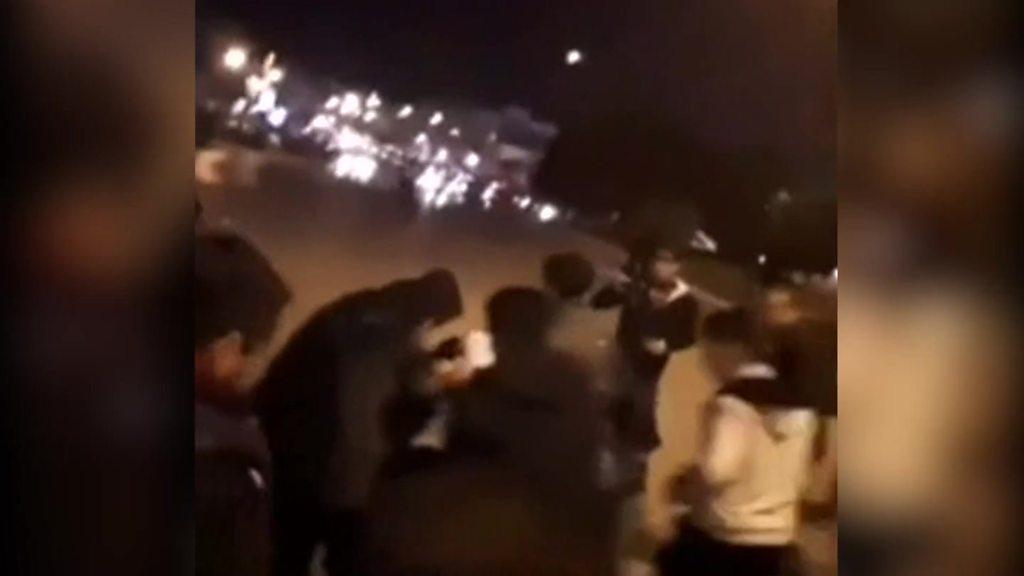
- Published31 December 2017
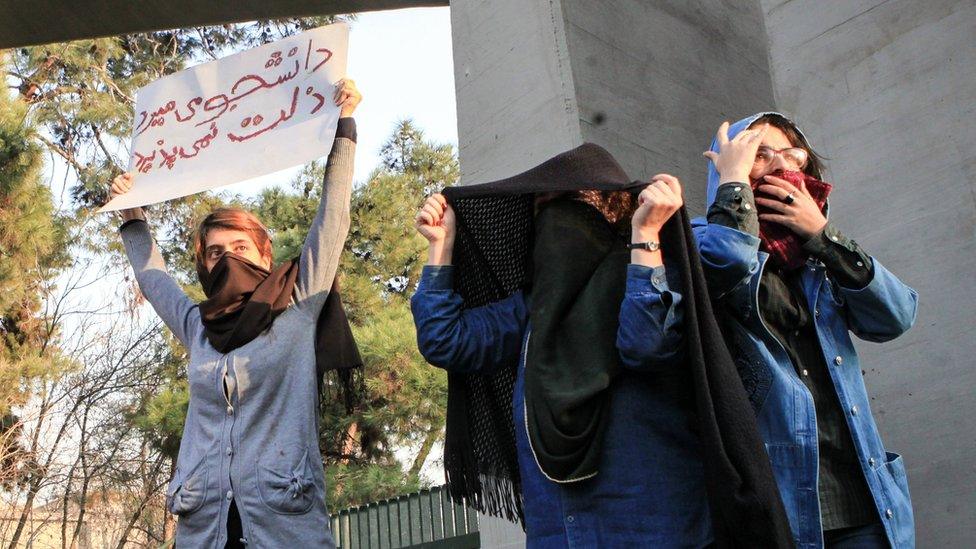
- Published31 December 2017
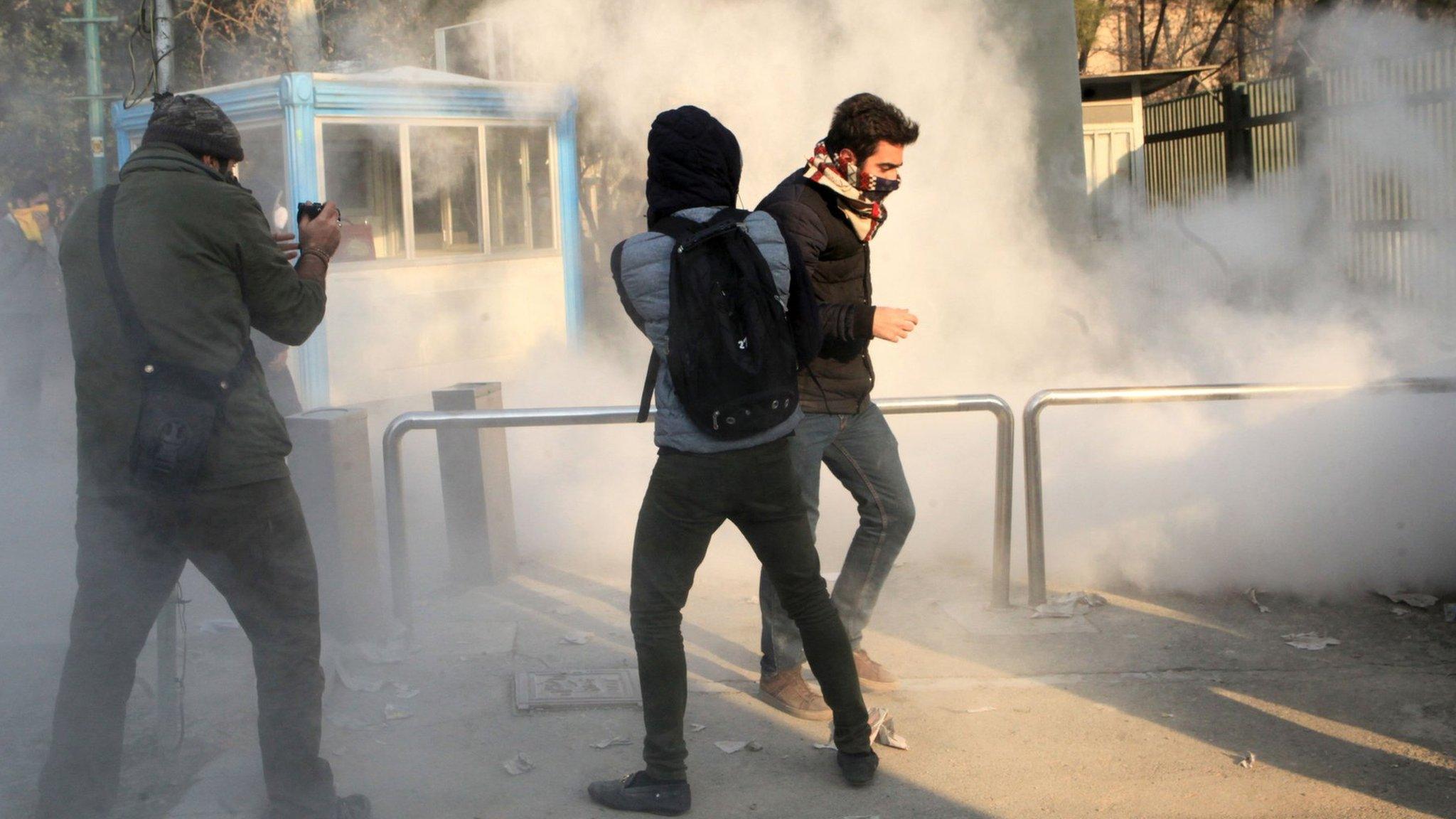
- Published28 December 2017
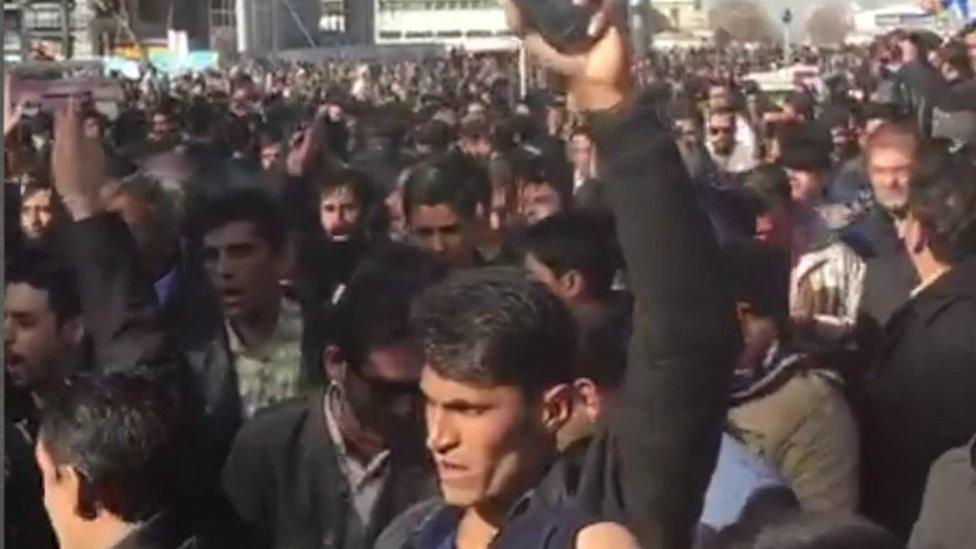
- Published20 May 2017
